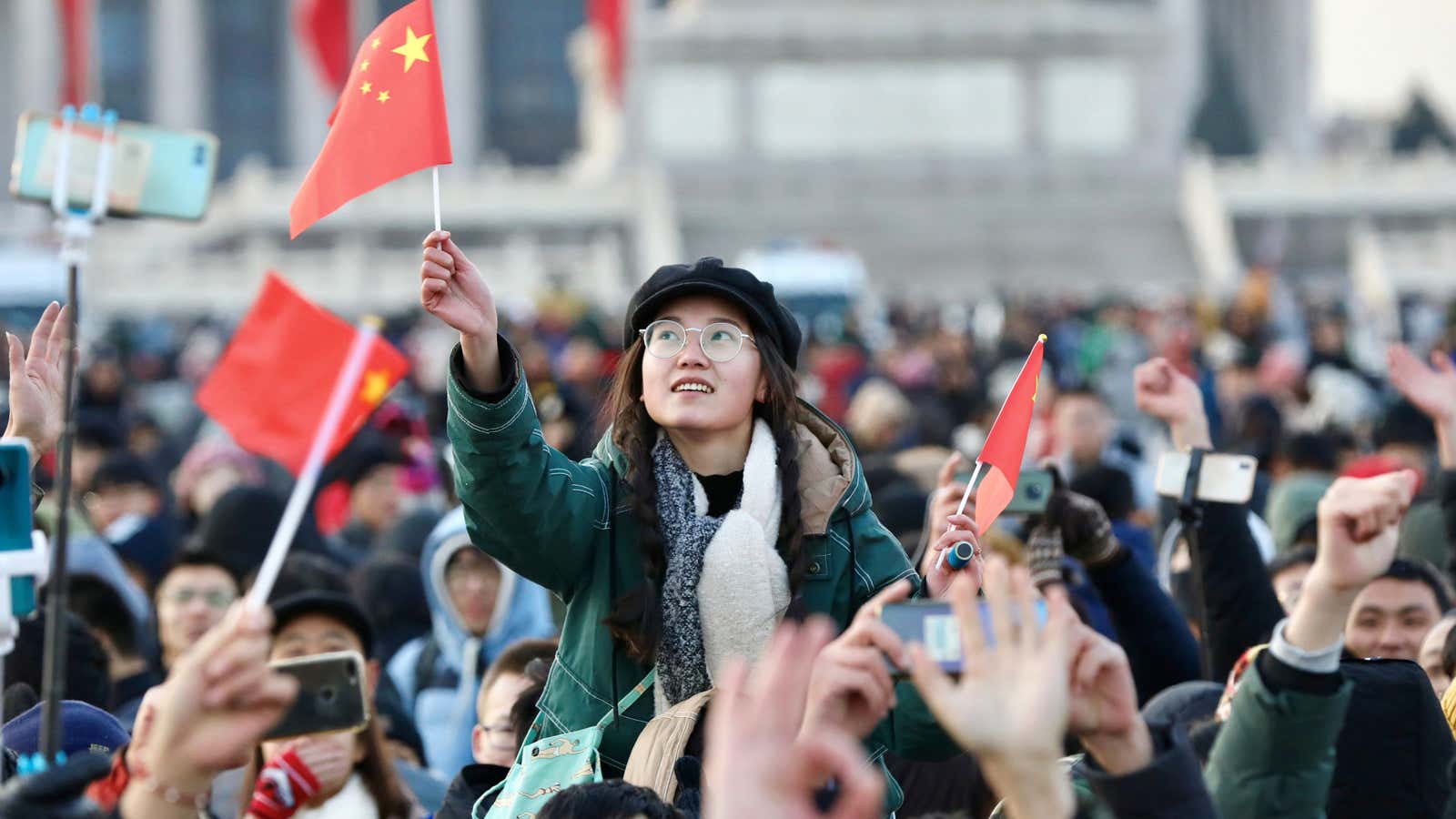It was supposed to be a good wish to ring in the new year but for many web surfers in China there were bad vibes about the message posted on a popular Chinese social network by the embassy of the Netherlands in Beijing.
The message, which emphasized the importance of human rights, contained a screenshot of the Chinese court document (link in Mandarin) that sentenced a Chinese Christian pastor to nine years in prison.
The message was posted by the embassy on its official Weibo account on New Year’s Day. “One of the wishes for 2020 that the Netherlands has is for all countries globally to implement the Universal Declaration of Human Rights unconditionally,” it said. “Today, we would like to reiterate the article 18 of the declaration: everyone has the right to freedom of thought, conscience and religion; this right includes freedom to change his religion or belief, and freedom, either alone or in community with others and in public or private, to manifest his religion or belief in teaching, practice, worship and observance.”
The attached screenshot was about Wang Yi, a Christian pastor who founded Early Rain Covenant Church, one of China’s largest underground churches. Wang was sentenced to nine years in prison for subversion of state power and illegal business operations on Dec. 30. Wang, who was known for his open criticism of Chinese leaders including president Xi Jinping, was detained in December 2018, along with his wife and a dozen other churchgoers and church leaders. Most of the detainees have since been released, but there has been no news of Wang until his sentencing.
China requires churches and all places of worship to register with the government but Wang did not. His Protestant church met secretly, possibly in places such as hotel conference rooms and cafes.
The post received hundreds of responses from Chinese web surfers, who accused the Netherlands embassy of interfering in another country’s domestic matters. “Can religions in the Netherlands interfere with its politics? We Chinese people would never allow religions to interfere with our politics! Neither would we allow foreign countries to interfere with our sovereignty!” said one user . “We are one of the five permanent members of the United Nation’s Security Council, who are you? You call this a new year’s wish? Do you have the capacity to achieve it?” asked another.
China’s state-owned newspaper the Global Times also weighed in. In a report on the backlash against the embassy’s Weibo post, the paper said it was “a typical trick of some Western countries” to invent fake news to discredit the Chinese government.
The Netherlands embassy told Quartz that the Weibo message was in line with government policy. “The Universal Declaration of Human Rights is one of the pillars of the international legal order. It represents the universal recognition that basic rights and fundamental freedoms are inherent to all human beings, regardless of nationality among other things. The Constitution of the Netherlands requires the government to promote the development of the international legal order,” the embassy said. “It is therefore not surprising that one of the Embassy’s well-wishes for the world is that all governments act in accordance with the Universal Declaration of Human Rights, so that all people can enjoy the rights and freedoms to which they are entitled. The universality of human rights means that human rights are the same everywhere for everyone, and not specific to any state,” it added.
The embassy also made reference to a policy paper published last year by the Dutch government on China. The paper makes explicit reference to the “deteriorating” human rights situation in China and also states that “The Netherlands regularly calls China to account for this through bilateral and multilateral channels.”
China has tightened restrictions on religious freedom under Xi, initiating crackdowns on underground churches and rolling out harsher punishment for those who do not comply with regulations.
